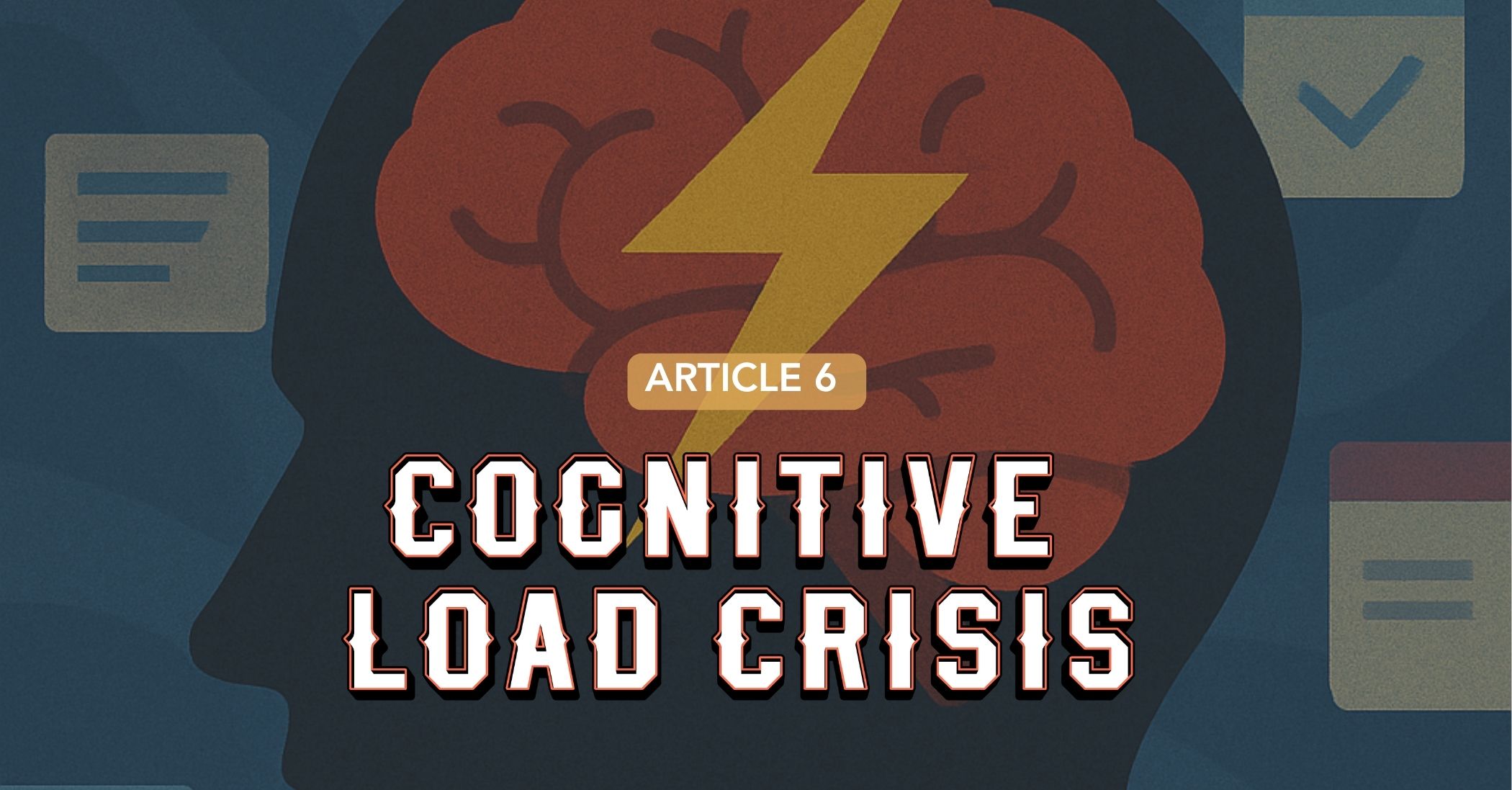The Cognitive Load Crisis
Robert Kenfield | 7 mins read | November 19, 2025
The key to understanding what productivity tools do to us lies in a property of the human brain that neuroscientists call neuroplasticity, the brain's ability to reorganize itself by forming new neural connections throughout life.
This isn't a metaphor. Your brain physically changes based on what you do with it repeatedly. Neuroplasticity enables learning, skill development, and adaptation. But it also means that tools and technologies that mediate how you think literally reshape the neural pathways that constitute your thinking.
As Carr writes in The Shallows: "The brain has the ability to reprogram itself on the fly, altering the way it functions." The question isn't whether technology changes our brains, it's whether those changes serve our flourishing or undermine it.
Musicians who practice their instruments for years develop enlarged neural regions dedicated to finger movement and auditory processing. London taxi drivers, who must memorize the city's complex street layout, develop enlarged hippocampi, the brain region involved in spatial memory.
Your brain physically reorganizes based on what you demand from it.
So what happens when you spend hours every day switching between fragmented apps, responding to notifications, scanning task lists, and jumping between contexts?
Your brain rewires itself to become excellent at those activities. And in doing so, it becomes worse at their opposite: sustained focus, deep reflection, and integrative synthesis.
Every time you switch between your calendar, task app, and notes, you incur what psychologists call a "switching cost," a measurable degradation in cognitive performance.
Research from the American Psychological Association shows that even brief mental blocks created by shifting between tasks can cost as much as 40% of someone's productive time. These aren't trivial inefficiencies, they're fundamental disruptions to how thinking works.
But here's what makes this particularly insidious with productivity tools: the switching isn't occasional; it's continuous. Modern knowledge work involves constant movement between fragmented systems:
Check email → check calendar → update task list → check Slack → review notes → check email again → respond to notification → check calendar → update tasks...
This rapid context-switching creates what researcher Linda Stone calls "continuous partial attention," a neurological state where you're constantly monitoring multiple streams of information but never fully engaged with any single task.
Your brain adapts to this pattern. Over time, you become optimized for continuous partial attention and degraded at sustained, focused thinking.
The switching problem compounds through what organizational psychologist Sophie Leroy calls "attention residue", when you switch from Task A to Task B, your attention doesn't cleanly follow. Part of your cognitive capacity remains stuck on Task A, degrading your performance on Task B.
This is why back-to-back meetings feel so exhausting even when you're "just sitting and talking." Each meeting leaves attention residue that interferes with the next one. Your calendar makes this destructive pattern look reasonable, look at all those efficient, filled time blocks!, but your brain experiences it as cognitive fragmentation.
The calendar grid enabled you to create an impossible schedule: one where you're never fully present for anything because you're always carrying attention residue from the previous activity and anticipating the next one.
After a day of constant switching, you feel mentally exhausted not because you did difficult cognitive work, but because you spent eight hours degrading your cognitive performance through continuous fragmentation.
Productivity app notifications create a particularly toxic form of cognitive degradation. Even when you don't respond to a notification, it disrupts your thinking.
Research from the University of Chicago found that the mere presence of notifications, even when ignored, reduces available cognitive capacity. Your brain allocates processing power to not responding to the notification, power that therefore isn't available for whatever you're actually trying to focus on.
This is why "notification management" doesn't solve the problem. Even when you've trained yourself not to immediately check every ping, your brain still experiences the interruption. The damage happens at the neurological level, not the behavioral level.
And because productivity apps send notifications continuously, task reminders, calendar alerts, activity prompts, streak warnings, your brain exists in a constant state of low-grade distraction.
You're training your brain to never fully focus.





















